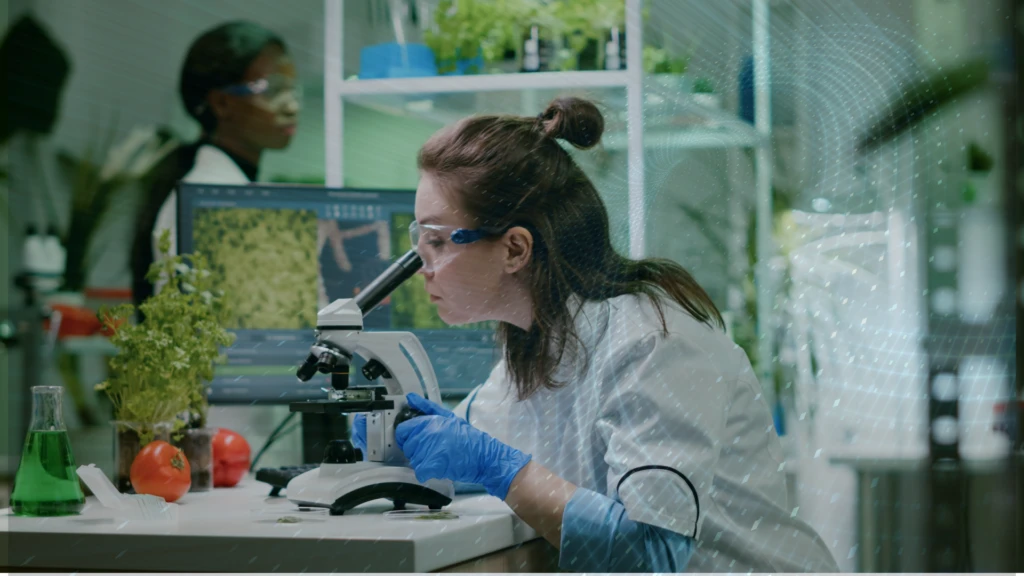
High-performance computing (HPC), AI, and future quantum computing systems have the potential to help humanity make progress against some of the most complex scientific problems facing the planet, including climate change, food insecurity, and new treatments for diseases. Unlocking the full potential of these computing technologies will require global collaboration among public and private institutions.
To foster the positive impacts of these technologies, we must first ensure that responsible use is at the center of their development and deployment.
Responsible AI initiatives have demonstrated the importance of proactively understanding and addressing risks that arise from advances in computing. One well-known example is the risk that future scaled quantum computers present to public-key cryptography. Chemistry applications leveraging HPC, AI, and in the future, quantum computing are dual-use, with potential benefits and risks. To protect against malicious use and ensure the use of this technology for societally beneficial purposes, we should build on learnings from the growing field of responsible AI and adopt a “responsible computing” approach.
Global action to mitigate these risks, especially with like-minded partners, will help us safely embrace technologies across the classical and quantum stack to the benefit of all of humanity. The recently launched Open Quantum Institute (OQI) is an exciting example of the importance of global collaboration bridging science, diplomacy, industry, and non-governmental organizations (NGOs) to realize this vision of inclusivity in the technology and its applications.

Azure Quantum
Get innovative quantum hardware, software, and solutions in a single cloud service.
HPC, AI, and Quantum can help condense years of scientific discovery
Today, AI has powerful applications across the humanities and the sciences. In January, Azure Quantum and Pacific Northwest National Laboratory (PNNL) researchers shared how HPC and AI were used to accelerate the scientific discovery of new energy storage solutions. Together, the teams discovered and synthesized a new electrolyte material candidate that showed potential for resource-efficient batteries. In less than nine months, the team built a battery proof of concept with the new electrolyte, which uses 70% less lithium than electrolytes in existing lithium-ion batteries. Although further optimization is required to improve conductivity, this accomplishment demonstrates the start of an R&D paradigm shift that will empower researchers to solve the most challenging chemistry and materials science problems quickly with AI and HPC, providing substantial environmental and economic benefits.
Future quantum computing capabilities could dramatically expand applications in chemistry, biochemistry, and materials science. Scaled quantum computers could offer an exponential speed-up for modeling molecules with higher accuracy than is possible classically, equipping researchers with more reliable computational understanding and design of materials and chemicals.
Advancing innovation through responsible computing
To enable these positive applications, we must develop and provide access to these innovative technologies responsibly. This commitment to responsibility exists today with HPC and AI, and it will extend to quantum computing in the future. In partnership, we must develop a clear understanding of the risks and the path forward for mitigation.
First, we need to address the risk that quantum computing presents to public-key cryptography, which serves as the foundation for data encryption in our digital economy. We must accelerate the global migration to post-quantum cryptography and the adoption of symmetric encryption, where appropriate. The enormity of this task and the immediate threat of bad actors storing data now to decrypt later when they have access to a scaled quantum computer require urgent action from governments and the private sector. The adoption of quantum-safe cryptography can mitigate quantum computing’s unique applications in cryptanalysis and is a mandatory first step in ensuring the responsible use of quantum computing.
Second, we need to work closely with the technology ecosystem, governments, and NGOs to develop responsible computing governance frameworks that traverse dual-use risks in chemistry applications enabled by HPC, AI, and future quantum computing systems.
The field of chemistry is inherently dual-use. We can look to Alfred Nobel’s creation of dynamite as a clear example of how scientific innovation can be both a tool and a weapon. The dual-use risk in computational chemistry is not unique to quantum computing. It exists today with AI and HPC. For example, a bad actor could misuse a chemistry application developed for a societally beneficial purpose, such as creating less toxic chemicals, to attempt to cause harm instead. We need thoughtful product-based and user-based controls that prevent malicious actors from gaining access to these capabilities with the intention of doing harm. They should include:
- Partnering with global stakeholders to develop meaningful principles to guide our development and use of this technology.
- Implementing a “Know Your Customer” approach and working with trusted partners.
- Adopting product-based technical and contractual controls to limit misuse of applications.
As we’ve learned from AI, we can’t wait to address these opportunities and risks until they are upon us. The technological landscape can evolve quickly, and early adoption of governance and risk mitigation measures sets a critical foundation for future innovation.
Global collaboration to further impact
Many of the U.N.’s Sustainable Development Goals for 2030 are underpinned by chemistry and materials science problems that cannot be solved by advances in classical computing alone. The first applications for quantum computing may be modeling catalytic systems to discover more efficient catalysts for carbon fixation to help combat climate change, identifying sustainable production methods for fertilizer, or developing cleaner combustion.
The future impact of quantum computing on these fields cannot be understated, yet no country or company will be able to achieve these milestones alone. Realizing the full potential of quantum computing will require global partnerships across governments, industry, academia, and NGOs to not only build quantum computing systems, but to also develop high-impact applications and use cases to help solve previously intractable problems in chemistry and materials science.
Today, the Geneva Science and Diplomacy Anticipator (GESDA) and CERN launched the Open Quantum Institute to bring together countries with and without quantum capabilities to build an inclusive, global quantum ecosystem. The OQI is a forum for science diplomacy dialogue with more than 20 countries on relevant themes including standardization, human agency and capital, environmental impact, equity and inclusivity, and implications of the dual-use nature of the technology.
The OQI bridges quantum R&D stakeholders and U.N. organizations to explore applications of quantum computing for the U.N. 2030 agenda, while also providing education and access to quantum devices to underserved geographies. Multilateral governance plays a key role in ensuring the safe deployment of these global activities at scale. We are proud to support the OQI on its mission to ensure that quantum technologies benefit all of humanity.
By acting globally to understand and address the risks together, especially with partners who share our vision, we can safely embrace the promise of advanced classical computing, like HPC and AI, and future quantum computing systems. The OQI demonstrates the promise of global cooperation towards that goal.
Learn more about quantum computing
- Read more about responsible computing and the societal impact of quantum computing.
- Read more about the Open Quantum Institute.
- Discover more about the Geneva Science and Diplomacy Anticipator (GESDA).
- Learn about our recent materials discovery with PNNL.
- Visit Microsoft’s quantum roadmap.
- Learn more about our commitment to quantum-safety.
